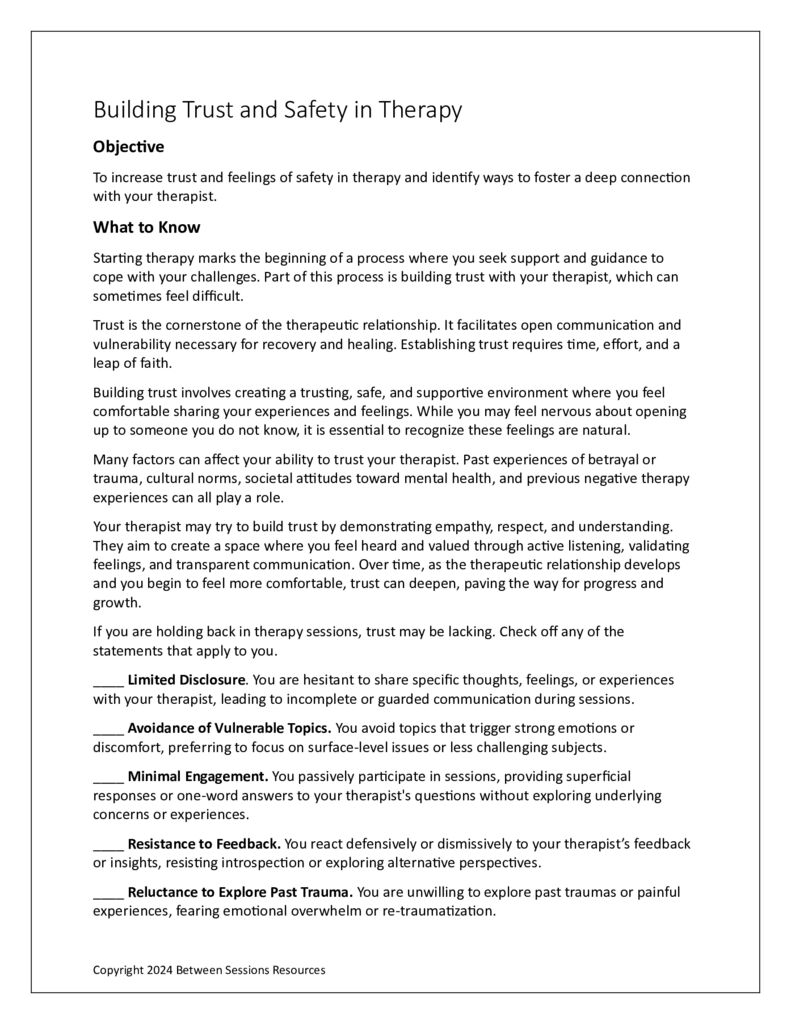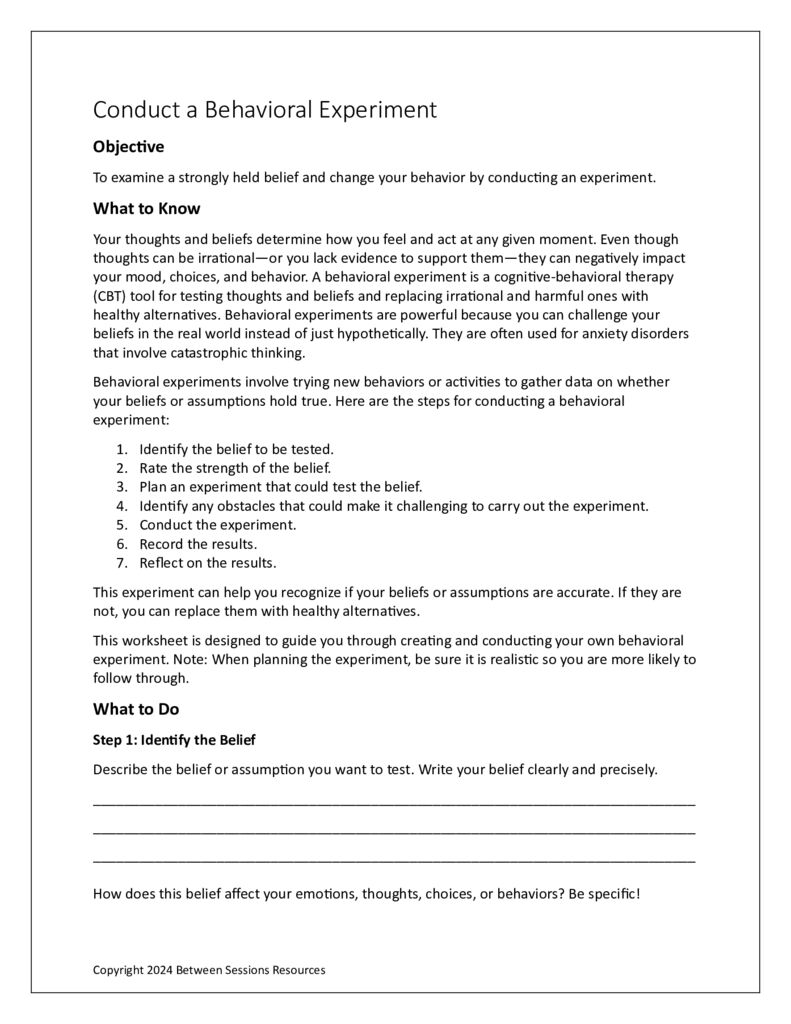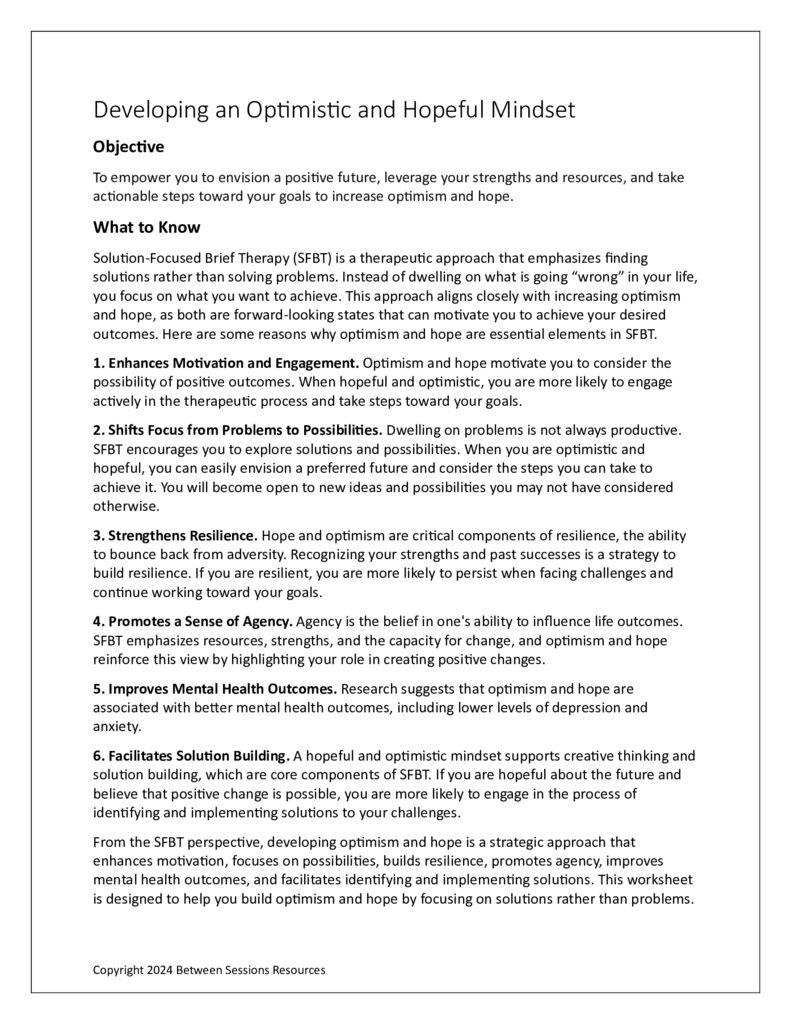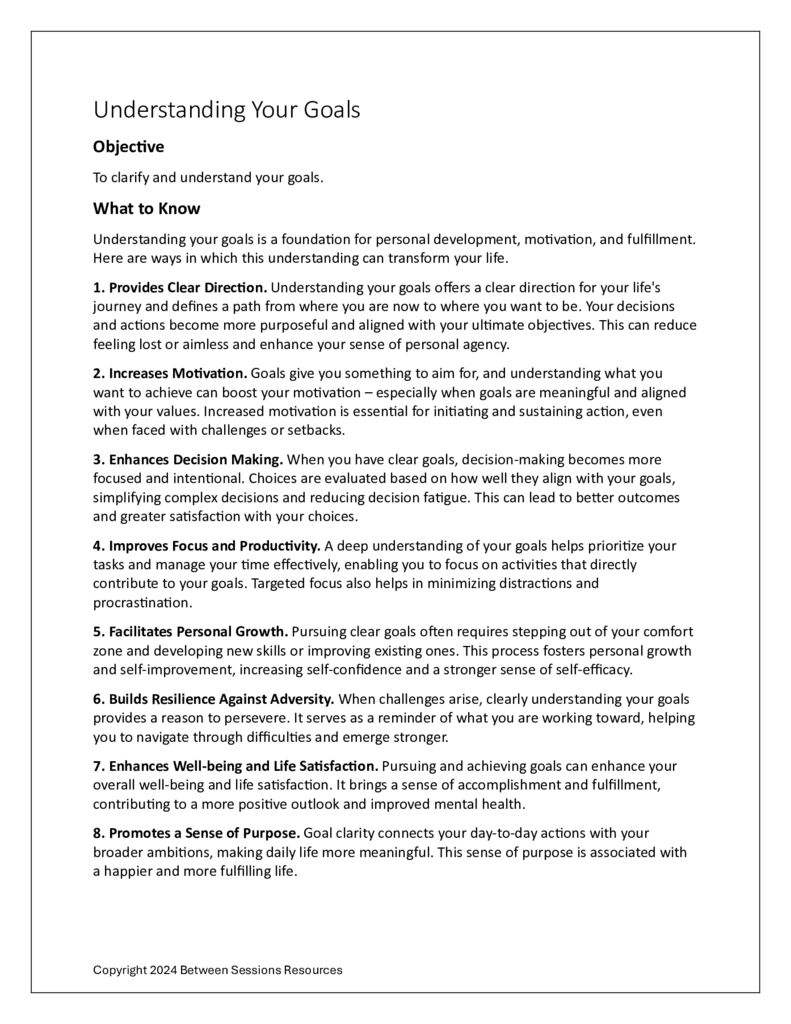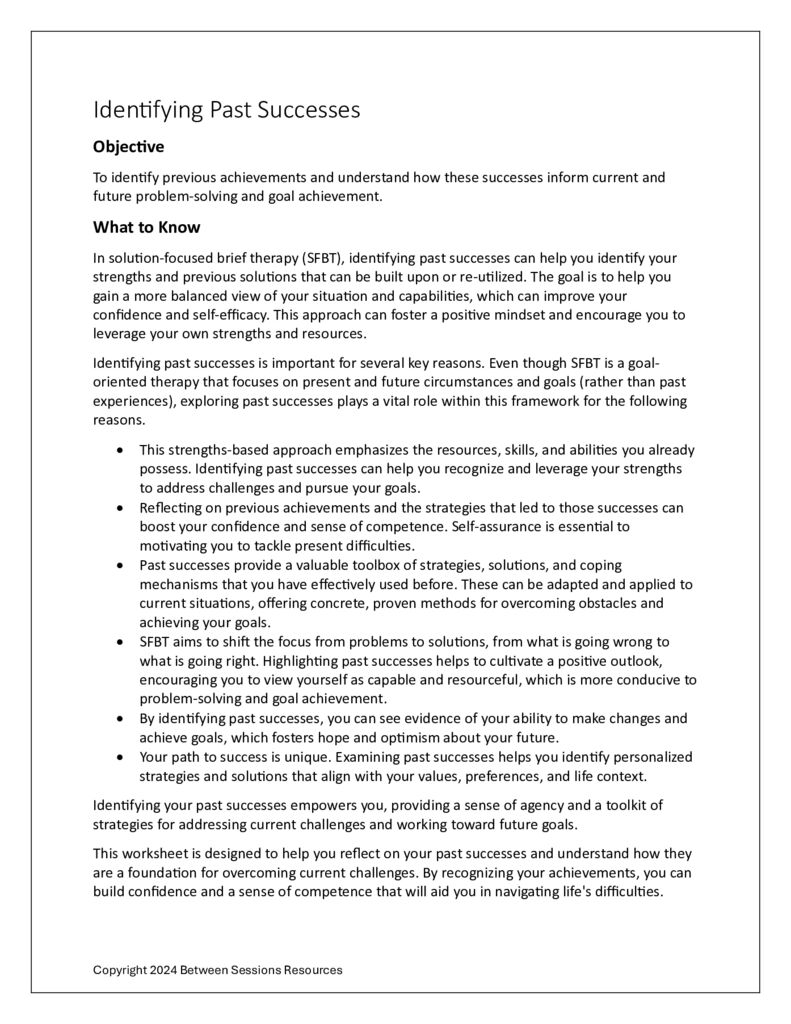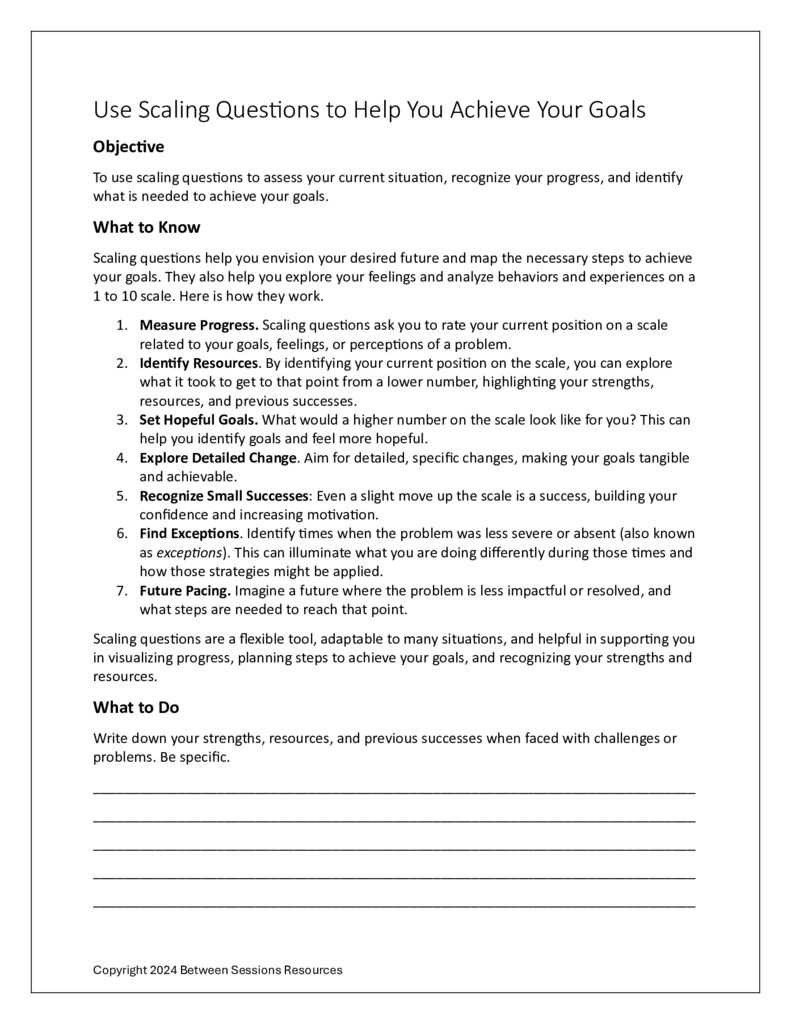This Assignment Workbook contains 17 worksheets derived from Solution-Focused Brief Therapy, one of the most commonly used evidence-based therapies in the world. The worksheets focus on the client’s strengths and successes rather than exploring past problems. (0824, solution-focused, SBFT)
Interoception refers to the ability to sense and understand the internal state of your body, including noticing physical sensations such as hunger, thirst, heart rate, muscle tension, and emotions. It plays an important role in self-awareness and self-regulation. This worksheet gives a variety of exercises to help people improve their ability to sense and understand the internal state of their bodies. (0824, awareness, emotional regulation)
This worksheet goes beyond the conventional wisdom of telling people to connect with others who are like them (bonding) and encourages them to also make social connections with people who are not like them (bridging). The worksheet focuses on helping people set goals to become more socially active and to take small steps to achieve those goals. (0724, depression, isolation, loneliness)
This worksheet is intended to take people who have experienced trauma through the process of CPT including understanding thoughts and feelings associated with the trauma, writing about and discussing the experiences related to the trauma, challenging harmful beliefs related to the trauma, and developing more realistic thoughts. (0724, trauma, PTSD, anxiety, CPT)
This worksheet can be used with clients who may have trust issues when starting therapy or counseling. It asks people to explore how trust issues are affecting their therapy work, such as limiting disclosure, reluctance to explore past trauma, inconsistency in attendance, and so on. It also offers even ways for clients can build trust and get the most out of their therapy or counseling sessions. (0424, trust, therapeutic alliance, progress)
This worksheet challenges people to test their beliefs about their problems by trying new behaviors. The worksheet takes people through a systematic approach to trying new behaviors, including anticipating challenges and obstacles, observing changes, and analyzing the results of the “experiment.” (0424, behaviors, solution-oriented therapy, CBT)
This approach to increasing optimism is based on Solution-Focused Brief Therapy (SFBT). The worksheet is designed to increase motivation, shift a person’s focus from problems to possibilities, stimulate creative thinking, and more. (0424, hope, depression, Solution Focused Therapy, agency)
This worksheet, based on Solution-Focused Brief Therapy (SFBT) is intended to help people see the importance of setting realistic goals. It asks people to envision how they want their future to look and then write 3 realistic goals that can guide their decisions and behaviors. It also asks them to think about people who can help them achieve their goals and designate small steps with each one bringing them closer to their goals. (0324, Solution-Focused Brief Therapy, goal-setting, problem-solving)
This worksheet is from Solution-Focused Brief Therapy (SFBT) and is designed to help people apply strengths they have used in solving past problems to their current situations. The worksheet explains why this process can be so helpful and presents a series of questions to explore how past solutions have helped. (0324, solution-focused therapy, problem-solving, decision-making)
This is a technique advocated by Solution Focused Brief Therapy. It encourages clients to continually rate their progress in addressing their problems on a 1 to 10 scale. (0324, motivation, solution-focused therapy)





